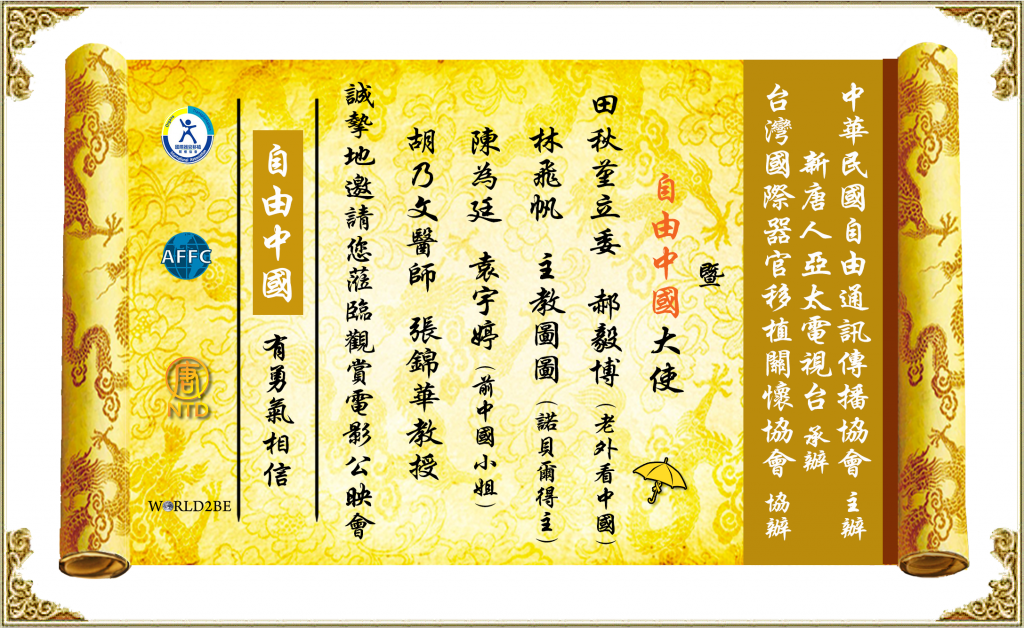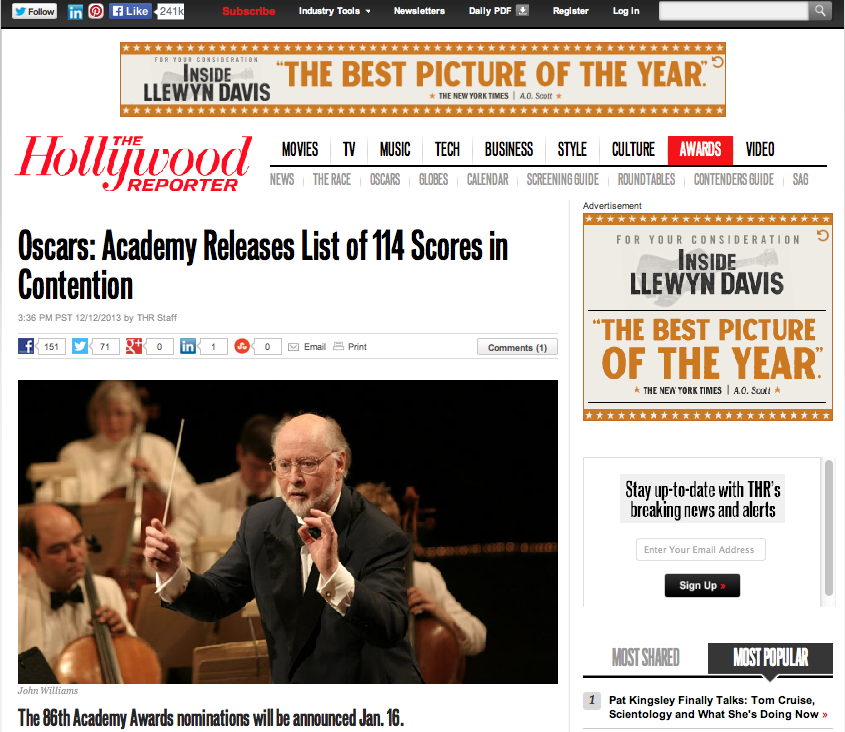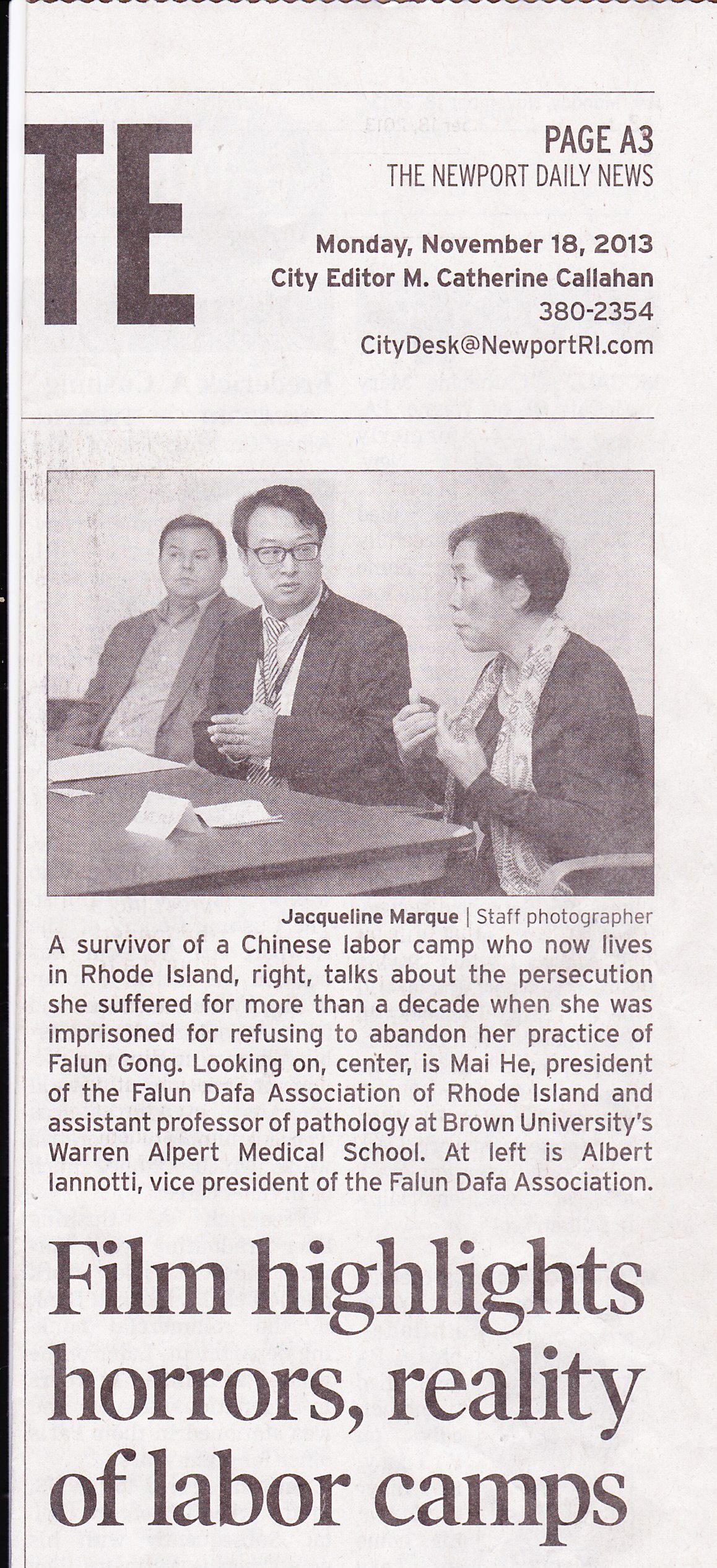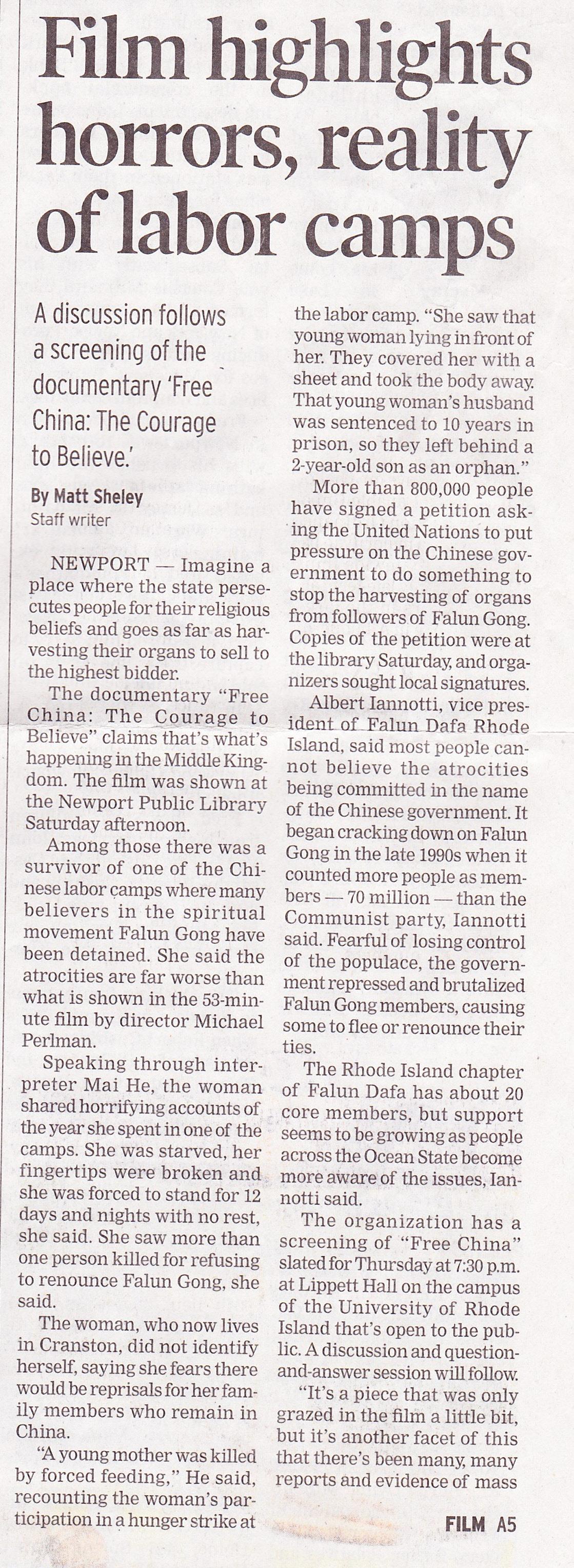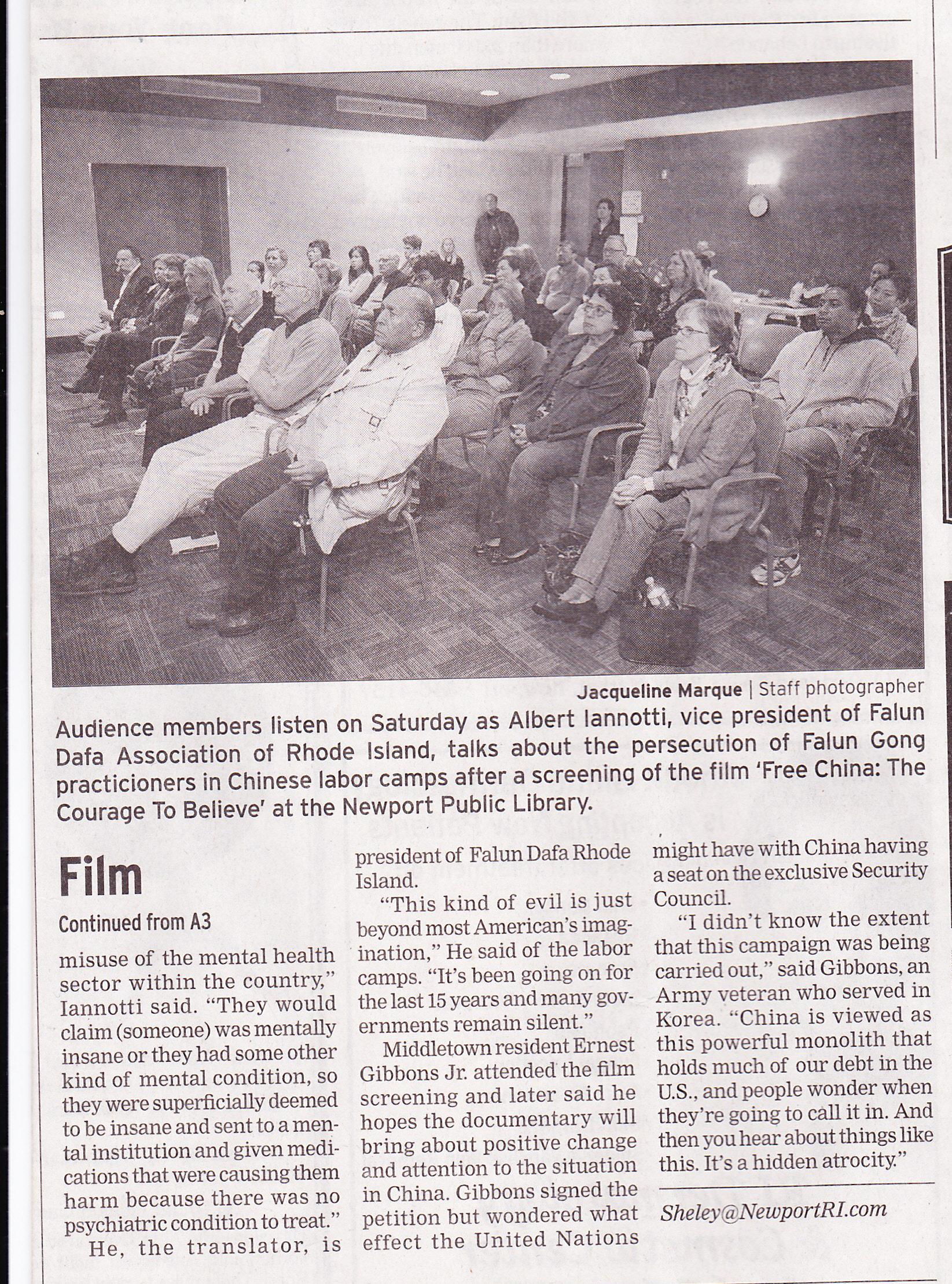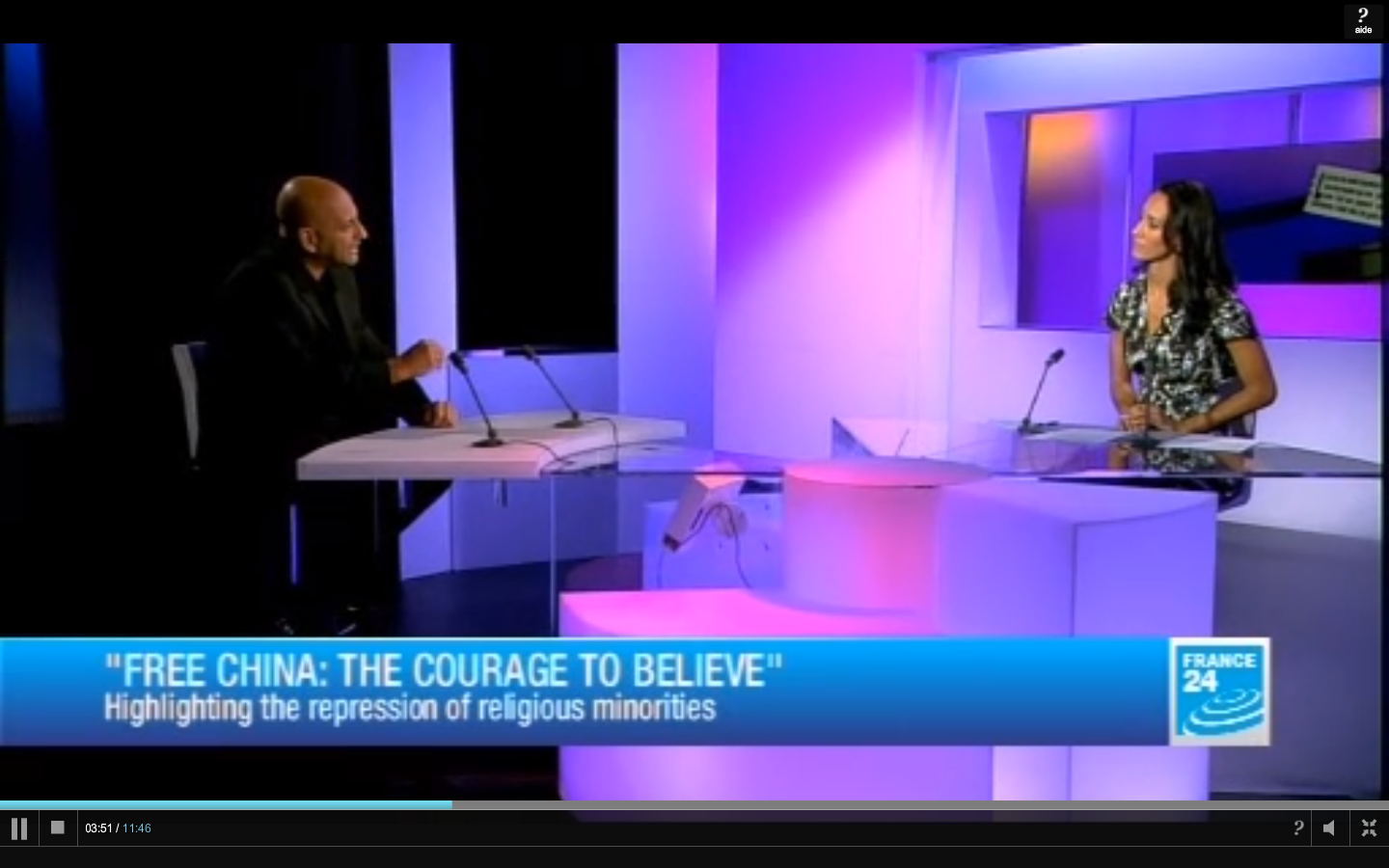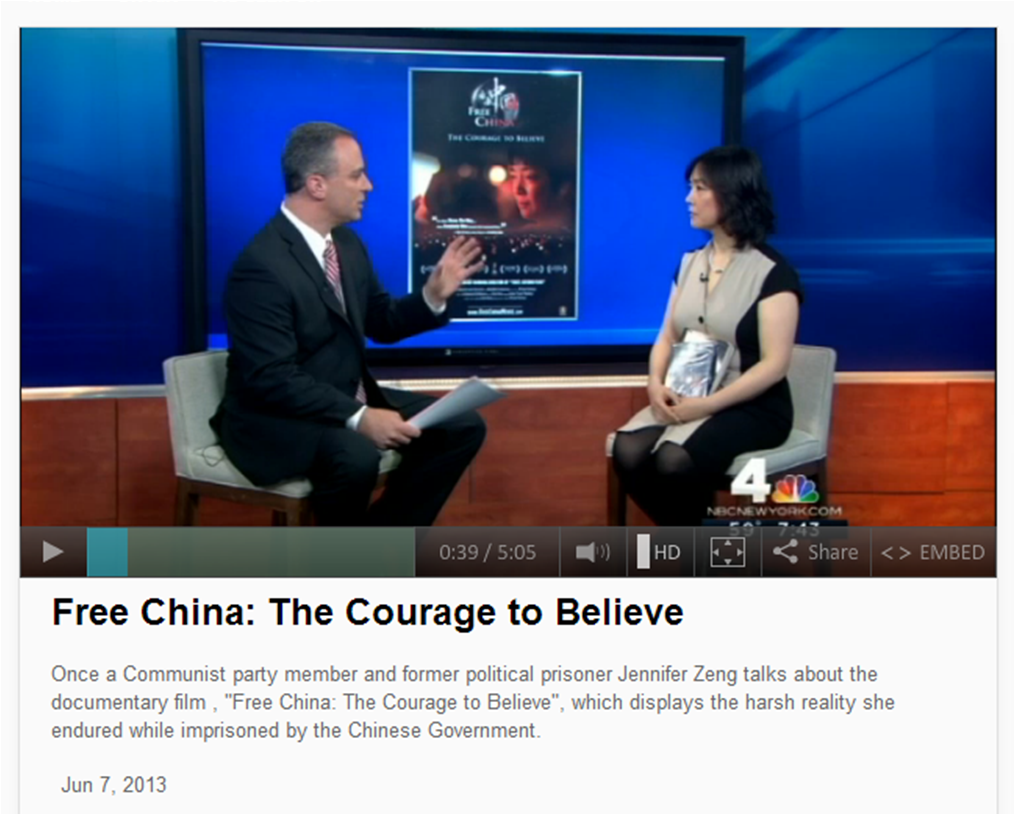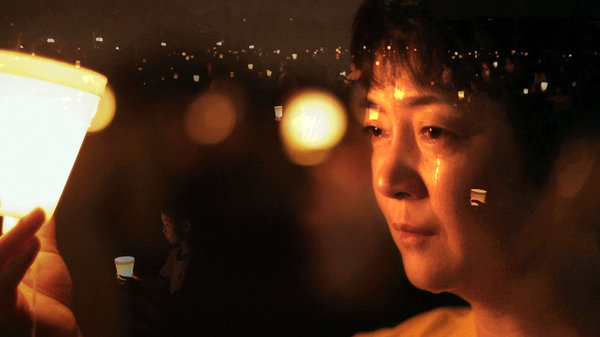
http://blogs.indiewire.com/thompsononhollywood/free-china-a-struggle-for-the-future-of-chinas-soul
BY JACOB COMBS
Michael Perlman’s new documentary “Free China: The Courage to Believe” which opens Friday in New York City for a week-long run, is a brave, upsetting, unabashedly political film that examines the dissonances between China’s remarkable economic rise and its appalling human rights record. But for Perlman and the rest of the team behind “Free China,” the film is not only about highlighting China’s humanitarian offenses–it’s about rallying the West to push for the dissemination of free information to the Communist state.
“Free China,” a production of New Tang Dynasty Television and World2Be Productions, is at its core a tale story of two activists. Jennifer Zeng and Charles Lee were both imprisoned by the Chinese government for practicing Falun Gong, a spiritual practice also known as Falun Dafa that began in China in 1992. Falun Gong combines elements of meditation and graceful exercises, focusing on three central tenets: truthfulness, compassion and forbearance. Promoted by the Chinese Communist Party in the mid-90s, Falun Gong became the target of government suppression in 1999 as it its popularity increased and the number of its adherents began to rival that of the Communist Party.
The central focus of “Free China” are a pair of one-on-one interviews with Zeng, a former Chinese Communist Party member, and Lee, a U.S. citizen and businessman. Because of her involvement with Falun Gong, Zeng was imprisoned in the Laogai, China’s forced labor prison camps, for one year; Lee was held captive for three years. During their time in the camps, the two were tortured, forced to make mass-produced goods for sale abroad (Lee manufactured Homer Simpson plush slippers at one point) and–most ghoulish of all–subjected to medical tests the activists allege were designed to assess them as potential targets of organ harvesting. When the police arrive to arrest Zeng and she asks them why she is being imprisoned, the answer is simple: “Because of your thought.”
Documentaries that focus on political issues often straddle the narrow divide between journalism and activism, combining the evidence-based approach of reporting with the call to action of advocacy. For the most part, “Free China” finds itself on the activist side of that line, extolling the virtues of Falun Gong and the peacefulness of its demonstrators while forcefully condemning the Chinese government’s response to the movement. But there is important reporting in the film as well, especially in the form of footage smuggled out of China’s forced labor camps which documents the deprivation and mistreatment of the country’s political prisoners.
These images are shocking, evocative and repellant, at times resembling some of the most inhuman atrocities committed by human beings in the last century. But the accounts of Zeng and Dr. Lee themselves are both the most moving and most upsetting elements of the film. Shot as simple, conversational close-ups and subtly interspersed with footage from inside China, the first-person narratives of the two activists humanize the story of China’s crackdown and anchor the specifics of real human experience.
To give just one example, Zeng talks of running away from home and family just five days after being released from a labor camp, overcome with her young daughter’s school-inculcated condemnation of Falun Gong. Zeng flees to Australia, applies for political asylum and begins to write a book about her experience. The process is halting at best, she says, because any time she remembers how she renounced Falun Gong to escape the prison camp, she is overcome with shame at having betrayed her values. This, she hypothesizes, is why other Falun Gong practitioners who are oppressed by the regime do not speak out: their will broken, they are consumed by embarrassment and stay silent.
Of course, Zeng does finish her book, “Witnessing History,” which goes on to become a bestseller. There is something deeply inspiring about Zeng’s journey–from ordinary citizen to political prisoner to apostate to activist–precisely because of the conflicting emotions she feels about her experience and the fact that she has continued to speak out and advocate for awareness and reform.
Speaking at a screening in Manhattan this past Tuesday, on the 23rd anniversary of the Tiananmen Square Massacre, Zeng stressed that “Free China” should not be seen as academic or historical, but rather as a reminder of what continues to happen to this day.
“After the Second World War,” she told the packed theater, “when we found out what happened in those Nazi concentration camps, we as human beings wrote, never again. Very unfortunately, this is happening again. The only difference is that while we couldn’t do anything to stop what happened in those Nazi concentration camps, we can do something to stop this 21st century genocide, so that when our children ask us in the future, ‘What have you done to stop this?,’ we’ll have something to say, ‘yes, we did something.'”
To Zeng and the rest of the team behind “Free China,” the film is clearly a means to action rather than an end in itself. At the screening, audience members were given copies of a joint statement by Bishop Desmond Tutu and Chinese civil rights activist Chen Guangcheng released that day to mark the Tiananmen anniversary. “Since China’s Cultural Revolution literally millions of Chinese citizens have been forced into labor camps for offenses related to thought and expression,” the petition reads. “We ask our leaders to speak on our behalf to President Xi Jinping and the Chinese Communist Party.”
Yet despite its serious subject matter, “Free China” feels at heart like a positive film whose goal is to enlist the international community in a renewed push for the personal freedom and liberty of the Chinese people. During Tuesday’s screening, NTD Senior Vice President Samuel Zhou told the audience that increasing access to free information in China is already transforming the Chinese society. “This is probably the best long-term investment into the future of China’s markets,” he said.
“Free China” is only one part of a possible opening up of the world’s most populous country. But it serves as a lesson that while China’s markets may have liberalized, its political system has not, leaving far too many people under the rule of an oppressive, autocratic regime. That’s something we know, but we often overlook. Jennifer Zeng and Charles Lee’s lives remind us that we have a duty to pay attention.
“Free China: The Courage to Believe” will play from June 7 to June 13 at the Quad Cinema, 34 W. 13th St, New York, NY, with performances at 3:10 p.m., 4:45 p.m. and 7:30 p.m.
BY JACOB COMBS
JUNE 7, 2013 6:06 AM
http://blogs.indiewire.com/thompsononhollywood/free-china-a-struggle-for-the-future-of-chinas-soul






